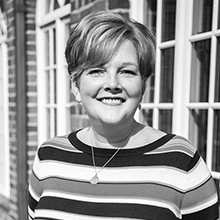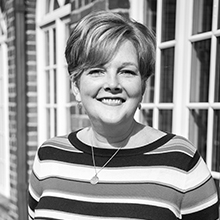U.S. Supreme Court: States Can Ban Judicial Candidates from Personally Seeking Campaign Cash
 In a ruling that took some fair courts advocates by surprise, the U.S. Supreme Court upheld the authority of states to bar judges and judicial candidates from personally soliciting campaign contributions. Chief Justice Roberts delivered the majority opinion in Williams-Yulee v. The Florida Bar, holding that “[a] State’s decision to elect judges does not compel it to compromise public confidence in their integrity.” Justices Breyer, Ginsburg, Sotomayor, and Kagan joined the majority opinion, although Justices Breyer and Ginsburg took issue with the application of strict scrutiny. Justices Scalia, Kennedy, Thomas, and Alito dissented.
In a ruling that took some fair courts advocates by surprise, the U.S. Supreme Court upheld the authority of states to bar judges and judicial candidates from personally soliciting campaign contributions. Chief Justice Roberts delivered the majority opinion in Williams-Yulee v. The Florida Bar, holding that “[a] State’s decision to elect judges does not compel it to compromise public confidence in their integrity.” Justices Breyer, Ginsburg, Sotomayor, and Kagan joined the majority opinion, although Justices Breyer and Ginsburg took issue with the application of strict scrutiny. Justices Scalia, Kennedy, Thomas, and Alito dissented.
Florida, like 29 other states that elect at least some of their judges, includes a provision in its code of judicial conduct prohibiting judicial candidates from personally asking potential donors, who tend to be lawyers or litigants who may appear before them, for campaign support. However, candidates may establish committees to raise money for their campaigns. Janell Williams-Yulee was a trial court candidate who asked for campaign donations ranging from $25 to $500 via a mass mailing and her campaign website, and she was reprimanded and fined by the Florida Bar for doing so. Williams-Yulee appealed first to the Florida Supreme Court and then to the U.S. Supreme Court.
The last time the high court ruled on the First Amendment rights of judicial candidates, the decision went the other way. In 2002, in Republican Party of Minnesota v. White, another 5-4 Court held that states may not keep judicial candidates from sharing their views on hot-button issues, even if those issues might come before them as judges. In Williams-Yulee, however, the majority found that the restriction on free speech was narrowly tailored to serve the state’s compelling interest in preserving public confidence in the integrity of the judiciary:
The judiciary’s authority . . . depends in large measure on the public’s willingness to respect and follow its decisions [so that] public perception of judicial integrity is ‘a state interest of the highest order.’ [Further,] [t]he solicitation ban aims squarely at the conduct most likely to undermine public confidence in the integrity of the judiciary: personal requests for money by judges and judicial candidates.
The Court declined to weigh in on the wisdom of electing judges.
IAALS Executive Director Rebecca Love Kourlis and O’Connor Advisory Committee Chair Ruth V. McGregor issued a joint statement regarding the momentous decision:
Our Quality Judges Initiative, and the O’Connor Judicial Selection Advisory Committee, believe that impartiality of the judiciary is a bedrock of our democracy. By the majority opinion today, the Supreme Court affirms the fact that judges are not politicians, that judicial elections are and must be different from other elections, and that different rules for those elections are supported by an important state interest in upholding public trust and confidence in the judicial branch. We applaud the opinion and hope that it will point the way for states to move their judicial selection methods away from the cash register accountability of the political process and toward methods that value impartiality above all, and that achieve accountability in ways other than through hurly burly high dollar campaigns.


